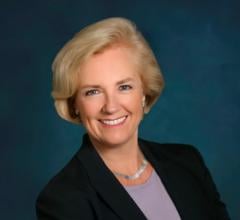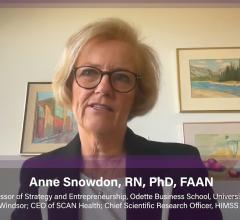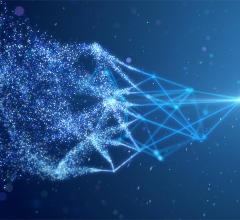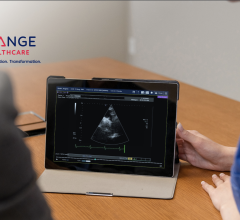
April 10, 2019 —Smart speakers customarily used in your living room can act as an aid to physicians in hospital operating rooms, according to new research presented at the Society of Interventional Radiology’s (SIR) 2019 Annual Scientific Meeting, March 23-28 in Austin, Texas. Smart speakers, such as the Amazon Echo and Google Home, offer a conversational voice interface that allows interventional radiology (IR) physicians to ask questions and retrieve information needed for their patient treatments without breaking sterile scrub.
“During treatment, IRs rely on nuanced medical information delivered in a timely manner. When you’re in the middle of a procedure, you need to remain sterile, so you lose the ability to use a computer,” said Kevin Seals, M.D., a fellow in interventional radiology at the University of California, San Francisco (UCSF) and lead author of the study. “This smart speaker technology helps us to quickly and intelligently make decisions relevant to a patient’s specific needs.”
The researchers at UCSF developed a device-sizing application for the Google Home smart speaker. The application processes questions from a human voice and provides recommendations on the precise sizing of medical devices. For example, if an IR needs to know what size sheath to use to implant a stent in a patient’s blood vessel, the smart speaker can quickly and accurately communicate the correct size based on the specific circumstances, which helps the physician in making a final decision.
“There are hundreds of devices, with more being introduced every day, making it difficult to determine the correct sizing or materials needed in every circumstance. This technology allows physicians to concentrate more closely on the care of their patients, devoting less time and mental energy to device technicalities,” said Seals.
In developing the application, size specifications were acquired using literature reviews for 475 IR devices, such as catheters, sheaths, stents, vascular plugs and others. Natural language processing was implemented using Dialogflow, which extracted the information of interest from an input query. Logic operations and other data processing were performed using a Python script deployed to the cloud.
The researchers plan to continue to build on this technology and expand its scope to include information on material costs and inventory databases. Having this information readily available will make treatments more efficient, cost-effective and beneficial to patients. Further research will look to yield information for physicians in other specialties and provide information from electronic health records and patient clinical data, such as allergies or prior surgeries.
For more information: www.sirmeeting.org
Reference


 December 23, 2025
December 23, 2025 









